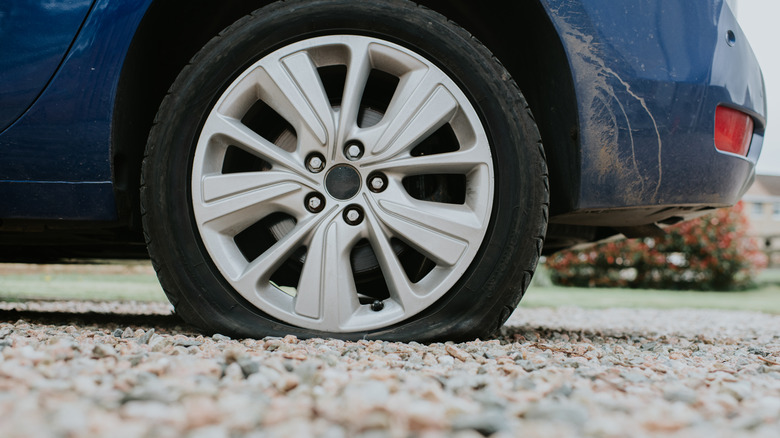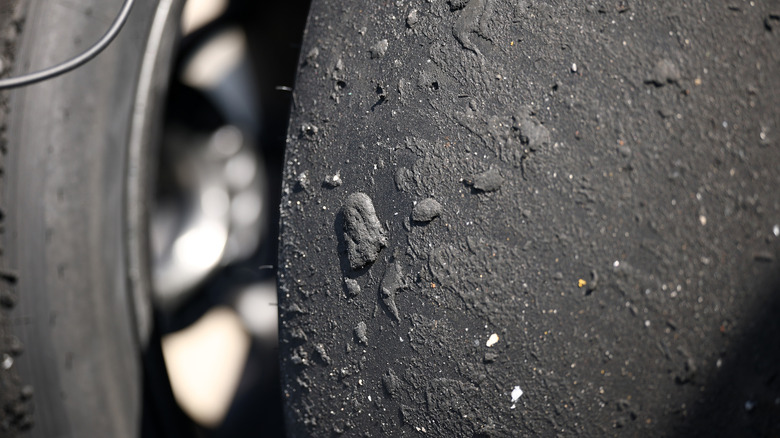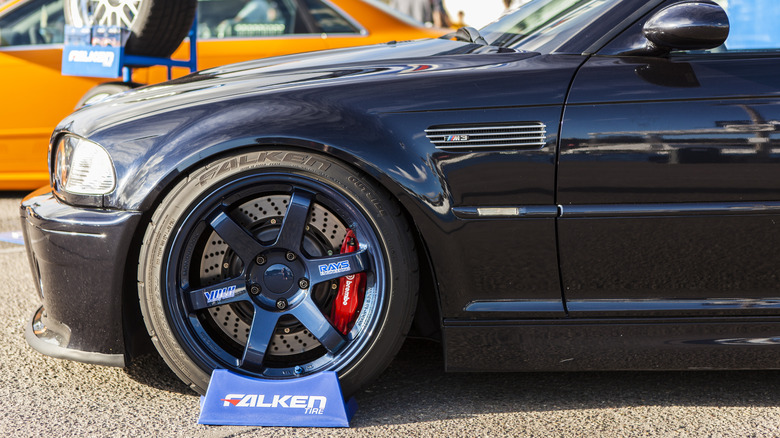The Biggest Reason Why You May Want To Avoid Buying Cheap Tires
Tires are nothing like an oil change, and thankfully, last for an average of three to five years. Still, replacing them isn't exactly a moment anyone looks forward to. It can be expensive, sometimes inconvenient, and often feels like one of those unavoidable car expenses you just grit your teeth and accept. So it's no surprise that many drivers are tempted to go with the cheapest option on the shelf.
Many drivers even opt for used tires, with estimates suggesting that around 30 million are sold each year in the U.S. While some used tires can still be safe if carefully inspected, that number highlights just how often people are willing to cut corners.
It's worth remembering that tires are the only part of your vehicle that actually makes contact with the road. Moreover, while cheap tires might look nearly identical to premium ones, the differences under the surface can be significant. So, if you're thinking about cutting corners here, it's worth taking a closer look at what you might be trading in exchange for that lower price tag.
They are a silent threat to your safety
On paper, budget tires might seem like a decent deal. But in the real world, on rain-slicked highways or during emergency stops, they're a gamble. The NHTSA says that tire-related crashes result in nearly 11,000 incidents and more than 600 deaths each year.
The most critical concern is traction. Cheap tires often lack the advanced rubber compounds and tread designs that give higher-end models their grip. In dry conditions, this might not seem obvious. But add rain or snow into the mix, and you could be looking at longer braking distances, skidding, or hydroplaning. Those few extra feet could be the difference between a close call and a crash in a real emergency.
Durability is another concern. Budget tires are more prone to punctures thanks to flimsier materials and thinner sidewalls. A flat tire is never fun, but it can be catastrophic at highway speeds. Plus, cheap tires wear faster, so not only are they more dangerous, they'll also need to be replaced more often.
One more thing most people don't consider is legal and financial liability. If a crash occurs, and it's determined your tires were substandard or worn out, your insurance company might deny your claim. Or worse, you could even be held liable if it's proven you knowingly opted for tires from dubious brands.
The other downsides you shouldn't ignore
Safety concerns aside, cheap tires come with a host of other headaches that can affect everything from your driving experience to your bank account. Such tires are often noisier and produce more vibrations, which translates into a rougher, less pleasant ride. Over time, that additional stress can also wear down your vehicle's suspension system faster.
Cheaper options also tend to have higher rolling resistance, meaning your engine has to work harder to keep you moving. That extra effort turns into more trips to the gas pump.
There's also the matter of frequent replacements. Cheaper tires wear out faster, and if you're replacing them every year or two, you're likely spending more over time than you would on a solid mid-range set. Mid-range brands like Falken, Cooper (Goodyear's subsidiary), and Riken (Michelin's subsidiary) hit the sweet spot between cost and quality, delivering safety and durability without breaking the bank.
All this is not to say that cheap tires are always a no-go. If you're in a pinch — say your tread is dangerously low and your budget is tight — grabbing a set of budget tires is always a good option. In the short term, a brand-new, cheap tire is still safer than a worn-out premium one. Just know that they won't last as long.


